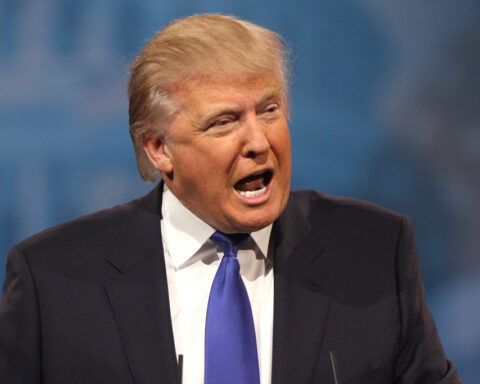For years, European governments rep0rtedly pressed Washington to take a harder line on Moscow.
Now, President Trump has thrown that challenge back at them, demanding that Europe halt its purchases of Russian oil and impose tariffs on India and China — even as European capitals remain deeply dependent on both.
This week, the European Union delayed a new sanctions package against Russia in order to “figure out how to toughen it up,” according to diplomats.
After speaking with Mr. Trump on Tuesday, the European Commission’s president, Ursula von der Leyen, promised a plan that would “hit Russia’s banking sector with extra restrictions and punish its crypto markets and energy sector.”
But Trump’s call to action goes further. He has urged Europe to put its money where its rhetoric is by tapping frozen Russian assets — about $300 billion held largely in Belgium — and using them to support Ukraine’s defense. His administration has also insisted publicly that Europe should act on the assets, despite European fears that doing so would undermine its reputation as a financial safe haven.
The president’s demands underscore the uncomfortable reality that, while European leaders have repeatedly called on Washington to toughen sanctions, their own countries have continued to fund Russia’s war machine.
EU capitals purchased roughly $27 billion worth of Russian energy in 2024, with liquefied natural gas imports surging last year. Germany, France, and Italy remain among the bloc’s top buyers, while Hungary and Slovakia have made clear they will resist any abrupt cutoff of Russian oil and gas.
Von der Leyen has vowed to “speed up” the EU’s plan to end Russian energy imports by 2027, though that promise falls well short of Trump’s demand for immediate action.
Hungarian Prime Minister Viktor Orbán’s ties to the U.S. president could, however, make Budapest more receptive to Washington’s pressure.
Europe’s record on sanctions is mixed. The bloc has layered financial and energy restrictions on Moscow and significantly reduced gas imports, but enforcement has been uneven.
Some Russian banks still enjoy access to the Swift payment system, and the EU continues to shy away from secondary sanctions on countries like China and India that bankroll Moscow’s war effort.
Instead of tariffs — Trump’s preferred weapon — the EU leans on blacklisting firms and individuals. Officials expect the next package to target a number of Chinese companies, while any new measures against India appear unlikely. Brussels, in fact, is still pursuing a free-trade agreement with New Delhi, even as Indian refiners buy Russian oil in volume.
The gap between Europe’s ambitions and its actions has not gone unnoticed. Some diplomats privately contend that Trump issued his challenge knowing the EU could not meet it, thereby relieving Washington of pressure to escalate sanctions itself.
For now, Europe is weighing whether to unlock frozen Russian central-bank assets. One proposal would loan the funds to Kyiv, backed by guarantees that shield Euroclear, the Belgian depository holding the bonds. Officials describe the plan as a “free and unlimited subscription for armaments.”
Russia has threatened retaliation if assets are confiscated, including seizing the property of European companies still operating inside the country. But Trump’s message is clear: if Europe wants stronger American action, it must first prove willing to pay a price itself.
[READ MORE: European Union Moves to Weaken Israel With Tariff Threats Amid Gaza Conflict]









